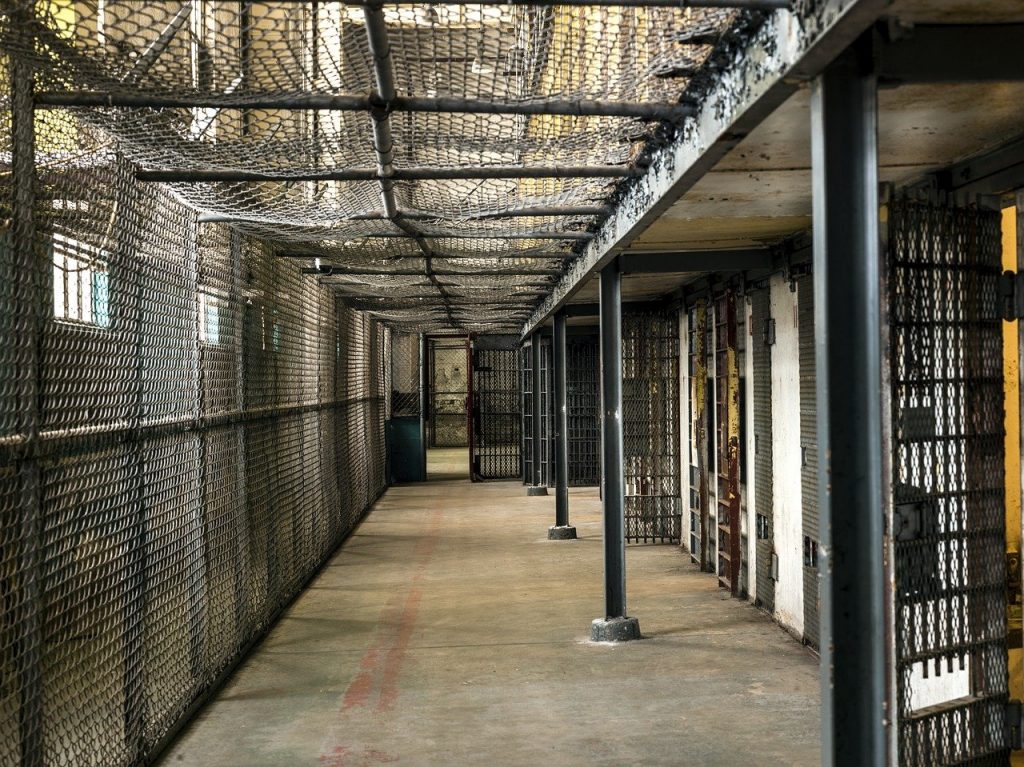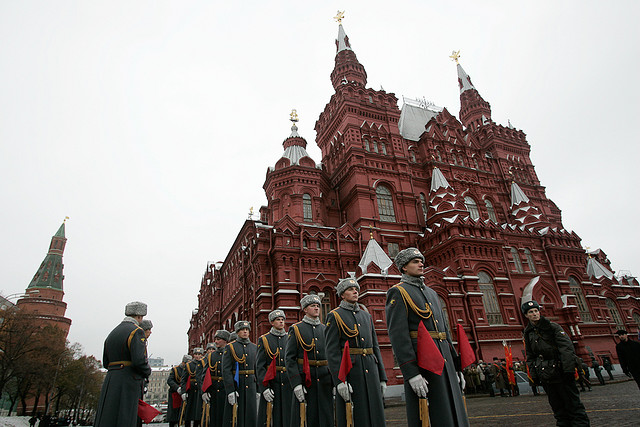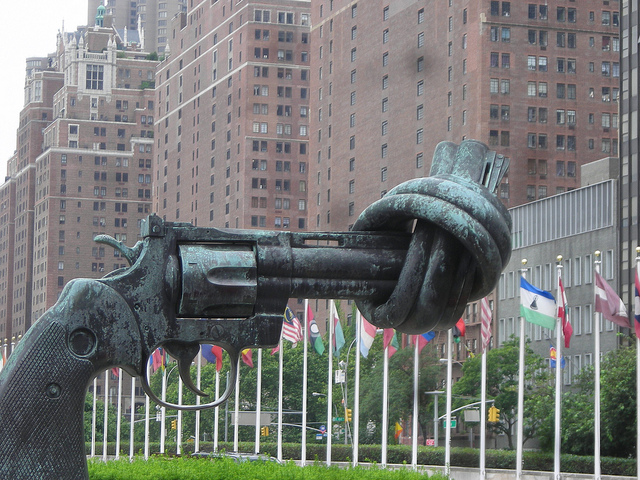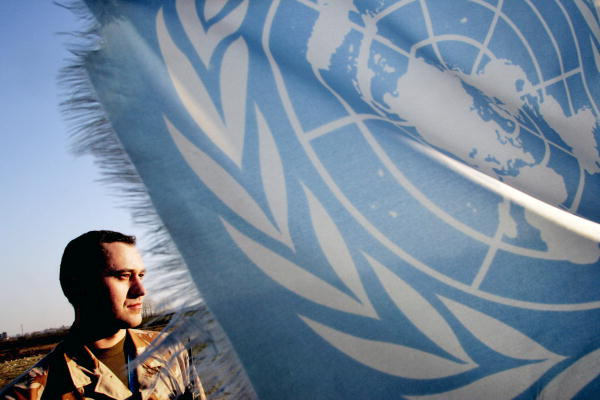Opinion
Want Peace? Study War!
International Security Studies have traditionally focused on military matters and the use of force, as for example strategy, defense, war studies and national security. One of the contemporary debates around this subject is whether the centrality of war is still relevant on the security agenda. In this article, I will try to present both views, pro and contra.
I will start by agreeing to the suggestion that the threat of war ought to still be the main theme of Security Studies and security policy making. The first argument has to do with the discipline itself. Since it is difficult to separate it from the larger International Relations, the main objective of this discipline too was to avoid the recurrence of a conflict like World War I. Leaving aside the distinctions between the schools of thinking, the threat of war led the field through the Cold War and beyond. It was World War II that proved the potential recurrence of big power conflict and this stabilized the discipline around war. Following this logic, by taking out the military as primary factor, the discipline itself would either disappear or evolve dramatically into something else. With the incorporation of Human Rights and International Development into Security Studies via Human Security, the term ‘security’ itself can lose strength. If all threats to security are put high on the agenda, prioritizing is absent and there will never be enough political will to tackle everything.
Second, even if we accept that war is no longer conceivable among Western democracies, it must be due to having the challenge of avoiding conflict high on the agenda. Whether we think about the US protection of Western Europe against the Soviet expansion through a stabilizing agent like NATO, or about eliminating divergences among Europeans states through common institutions and free trade, the aim was peace and security defined as absence of war or its threat. In my opinion, if scholars and policy-makers shift away radically from trying to solve the puzzle of security in military terms, there is a great risk that the horrors of the past will be forgotten and thus can repeat themselves.
Finally, the products of the academia must be relevant to the policy-making. States still consider the threat of war as up to date and still invest a lot in the military sector. The study of any national security strategy reveals how the use of force is indispensable. Whether it is considered as a unilateral tool, or a tool that needs international support or at least consensus in the case of Europe’s CFSP, the fact remains that national security strategies put a lot of focus on violent conflict. Thus, a discipline of Security Studies that revolves around human rights, social injustice, and other human security issues would in the best case produce policy proposals that do not consider the demand of political leaders and so it will not be taken into account. In the worst case, it will be picked up and used as sugar-coating for militarist purposes and ‘defiant unilateralism’.
Now the real question would be why do states still contemplate military engagement and war? The answer must be related to the threats. Even proponents of soft or smart power agree that the use of force is not obsolete. It is just changing due to nuclear proliferation and the emergence of non-state combatant actors. Terrorism, WMD and global criminal networks are still the main challenges of a country like the US, alongside with climate change, pandemic disease and cyber-security. Moreover, radical proposers of liberal imperialism even prescribe the use of double-standard and of the ‘laws of the jungle’ when dealing with the pre-modern world. Security can also be seen as the ability of a political elite to project power and control over a territory. This is the sovereignty interpretation of security, which requires border protection in order for the state itself to survive. The threat of war is perpetual in the minds of leaders and in the minds of the population who delegate military power to them.
With regard to the opposing camp, the claim is that war and the threat of war have seen a decline in international affairs and consequentially the focus of Security Studies ought to shift away from the military area. The first argument to support this claim has to do with the fast reduction in the number of interstate conflict after the end of the Cold War and its replacement by intrastate ones. In this case, the civilian population is part of the equation and non-state actors cannot be easily identified. Therefore, another approach is required when suggesting security policies. One that differs from classical ones, in the sense that it avoids putting military calculations on top of the list. Negotiations or even non-intervention are considered by the international community as instruments to end such conflicts since doing the contrary would sometimes create complications. Moreover, the EU’s global engagement through economic aid and commercial incentives is seen as a more effective way of altering the behaviour of actors and contributing to stability in the world.
Having touched on the economic side of the global order, we must present the second argument which is the vital place of economy in ensuring international stability. International economic security is seen here as the maintenance of the current liberal order, rather then the creation of an alternative one which would incorporate human security values. Tariffs and trade wars, energy leverage, the vulnerability of the monetary system can all have an immense destructive scale to the ‘economic well-being of billions of individuals’. Such scenarios turn the page from military power to the economic power of states. The most interesting instrument of economic power appears to be sanctions. Trade sanctions, travel bans but also positive sanctions like tariff reductions and aid can be applied against state and non-state actors in order to affect political behaviour. Relations based on economic self-interest, interaction and interdependence seem to be a solution to stability for Security Studies’ scholars ,without resorting to military action.
Finally, there is the most recent argument centered around the concept of Human Security. This concept goes beyond statism and national security interpretations. It drops the focus on the threat of military aggression towards governments, in favour of analysis around the protection of individuals against any type of situations and threats that could endanger their ‘survival, livelihood and dignity’. The aim of Human Security Studies is the emancipation, equality and freedom of all human beings, which would eventually lead to universal values like peace, fairness and justice. The empirical proof of the ascendancy of Human Security on the agenda is the UN’s project of the Millennium Development Goals. The ambitious list includes eradication of poverty and hunger, universal education, gender equality, improvement of global health and environmental sustainability. However, the deadline for achieving all these is one year from now and the limited success gives us a bleak glimpse into the governments’ true interest in humanitarian causes.
In conclusion, to my mind, the balance is leaning towards a continued importance of war and its threat in the security community. Military conflict is impregnated in the collective memory and the atrocities of war cannot be so easily put aside. Generations change but skepticism continues to persist in the face of contemporary invasions, land occupations and failing states. However, one must recognize the change in the international order and the increasing strength of other issues and necessities that affect the everyday lives of humans, regardless of nationality. Rights and freedoms, social justice, economic opportunity and the right to have a long, healthy life are being required more and more in international fora. Their satisfaction are indispensable to stability and prosperity which in turn could keep weapons down. But the weapons will always remain at hand.
References and further reading:
-
Cooper R., The new liberal imperialism, Observer Worldview Extra, 7 April 2002;
-
National Security Strategy, May 2010, The White House
-
Nossel S., Smart Power. Reclaiming Liberal Internationalism, Foreign Affairs, Volume 83 No. 2, 2004;
-
Nye J., The Future of Power, 2011, Public Affairs New York;
-
Rees W., The US-EU Security Relationship, 2011, Palgrave Macmillan;
-
Smith M., International Security. Politics, Policy, Prospects, 2010, Palgrave Macmillan;
-
UN Millennium Project, website: http://www.unmillenniumproject.org/goals/;
-
United Nations Trust Fund for Human Security, Human Security in Theory and Practice. Application of the Human Security Concept, 2009, Office for the Coordination of Humanitarian Affairs, UN.
-
US Constitution, website: http://www.archives.gov/exhibits/charters/constitution_transcript.html
China
Nepal Hindu Rashtra: Time to Wrap Up Communism?

Nepal abolished the Constitutional Monarchy in May 2008 and declared itself as a Federal Democratic Republic. There was a new hope in Nepal as it was becoming world’s newest democracy even though it had dissolved the Hindu Rashtra. However, the democracy in Nepal immediately got into the tight grips of leftists and communists backed by China. It has been almost 12 years since monarchy was abolished in Nepal. Interestingly, the Himalayan country has already seen 11 Prime Ministers in this period. Thus, leaving the Nepalese people still yearning for good and stable governance.
Re-establish Hindu Rashtra
As the political instability is growing in Nepal, people are demonstrating concerns about the future of the country. In fact, Nepalese citizens are unhappy with frequent interference by China and India influencing its unstable communist regime. More voices are now growing in support of reinstating the Monarchy and declaring Nepal as world’s only Hindu Rashtra (which by default offers full religious freedom to other religious minorities as per Hindutva concept of Sarva Dharma Sama Bhava – all paths lead to one).
Former Deputy Prime Minister of Nepal, Kamal Thapa said that if political parties do not recognize the seriousness of reinstating the monarchy, then the country will head for a period of darkness. “Recently, we’ve had high-ranking officials from India and China come to Nepal to try and solve problems within the ruling party,” he said. “We cannot let others dictate what we want to do.”
Communist Party All Set to Suppress Protests, By Force
Kamal Thapa has firmly demanded an all party meet to discuss reinstating of monarchy. Throughout the month of December, 2020 Nepal has seen anti communism protests across the country in support of reinstating the monarchy and Hindu Rashtra. Most importantly, the demand has become a nationwide mass people’s movement. So much so that the communist regime had to send a directive to 77 districts in 7 provinces. The directive suggests suppressing the protests by force. Nevertheless, Rashtriya Prajatantra Party and other royalist groups have ignored this threat from the communist regime. Protester groups have pledged to strengthen the protest in the coming weeks.
Nepal: Demonstration held in capital Kathmandu, demanding restoration of monarchy in the country. pic.twitter.com/TFjmKu9U9Z
— ANI (@ANI) December 5, 2020
Role of China – Hope for Communism in Nepal
China’s ambassador to Nepal is known to have very close relationship with Nepalese Communist regime. In fact, She has been super effective in tilting Nepal’s posture towards its ideological partner, China. One of her greatest achievements in 2020 was artificially manufacturing a border conflict between Nepal and India. Consequently, souring relations between the two Hindu majority nations. In addition, she managed to silence Nepal’s communist government after China took one of Nepal’s border villages under its control. However, recent political turmoil in Nepal and a renewed demand for reinstating of Hindu Monarchy is showing that the situation is now out of Chinese hands
Role of India
Year 2020, was not a good year for India and Nepal relations. India was busy in controlling domestic Covid cases. On the other hand, China had launched an invasive campaign into Indian territory. In addition, India is always busy with Pakistan on its western borders. However, the surprise came to India when China was almost successful in creating a new border tension between India and Nepal.
Those who do not know about Indian government should note that the current ruling party in India finds itself ideologically opposite to communism. This further creates differences between the two countries.
Communist party in Nepal has blamed India for supporting the ongoing anti communism protests in Nepal. However, former advisor to Nepal’s PM has suggested there is no proof that India is fueling pro Monarchy, anti communism demand in Nepal.
Nevertheless, There are certain influencers in India who have, in their personal capacity, expressed support for reinstating the Hindu monarchy. Yogi Adityanath, who is the Chief Minister of an Indian state bordering Nepal, said in 2015 that Nepal should declare itself a Hindu Monarchy. Readers should note that in 2015 Yogi Adityanath was not the Chief Minister yet. However, today he is not only popular in south of Nepal, his popularity is growing in Nepal as well.
Will The World See the first Hindu Rashtra?
It is difficult to answer this question at this moment. However, Nepalese communist government could not resolve the political instability and in December 2020 Nepalese government dissolved the parliament. Nepal will see next elections in April – May 2021. Hopefully, the world will see Nepal’s 12th Prime Minister in 13 years or may be a Hindu King? Royalists and protester groups have expressed confidence in winning next elections. We have our eyes on Nepal for updates.
Opinion
America’s Justice System – The Need For Reform

A recent poll by the National Opinion Research Centre revealed that 95% of Americans favour vital criminal justice reforms. This is hardly surprising, given that several people of varying racial, partisan and ideological dispositions have called out the justice system over its many failures throughout the years. Most Americans received the Trump Administration’s First Step Act as a step in the right direction, as about 60% of people approved the criminal justice reform bill according to a 2018 poll. However, many people still believe the justice system’s approach to crime is ineffective and needs dire change, and these are some reasons why.
Prison population and funding concerns
Research conducted revealed America has about 2.3 million prisoners, making the US the country with the highest incarceration rate globally. Experts estimate that the country’s prison population has grown by a whopping 340% over the past three decades; new prisoner admissions into jails are higher than prisoner release numbers. The cost of maintaining the nation’s prisons at taxpayers’ expense has inspired a lot of backlash and calls for budget cuts. According to research, slashed correction spending was the preferred option by most states to balance their budgets and redirect spending to other areas.
Minimum mandatory sentences
Minimum mandatory sentences are statutes that force judges to give defendants convicted of a crime the minimum prison sentence. Mandatory sentences rob judges of the traditional way of considering the defendant’s character and the unique circumstances surrounding offences. Even when represented by criminal defense attorneys with many years’ experience, defendants often succumb to prosecutors’ pressure to plead guilty or face more severe charges with higher mandatory sentences. The guilty plea bargain consequently resolves about 95% of both federal and state court cases. Research also shows that about half of inmates in federal prisons are doing time for drug offences- causing overpopulation in the prison system.
Growing number of people killed by the police
An estimated 1000 civilians are killed by police officers annually in the US. The frequency of police brutality cases over the years requires immediate reform to the American justice system. Data suggests that the incidence of fatal police shootings is higher among African-Americans than any other ethnicity, inspiring movements like the ‘Black Lives Matter’ campaign to press on with protests for significant police etiquette reforms towards coloured minorities. The police force faces incessant accusations of racial profiling, indiscriminate use of power, and poor discretion, which has led a reported 58% of Americans to think policing needs major reforms through measures like better-trained officers, and wearing body cameras.
Evolving public opinion on crime
Research released by the Sentencing Project and The Justice Policy Institute reveals that more people in conservative states are embracing preventive, rehabilitative, and alternative sentencing options for non-violent offenders. Most Americans now view the prevention of crime as the most vital function of the justice system, as 77% of Americans think that focusing more on character education and after-school programs would be cost-effective by reducing the number of people going to jail. Almost two-thirds of Americans also believe in the need for lighter sentences with more useful, reformative programs in prisons that will benefit inmates upon release. Therefore, support for harsh penalties that harden criminals and make them a more significant menace when reintroduced into society has dwindled.
Opinion
The History Question: Is It Better to Remember or to Forget?

Years ago, a philosopher by the name of George Santayana said a phrase that fuels many debates to this day. His original saying is “those who cannot remember the past are condemned to repeat it”, although, many sources now present it as variations of “those who cannot learn from history are doomed to repeat it”. The latter definitely has more substance to it in the light of the ongoing debate about how much history we should be learning and how.
Is It Better to Remember or Forget About the Past?
On one hand, Santayana was right. Learning about the past is essential in order for people to progress. One also shouldn’t overlook the importance of remembrance and paying respects to the dead, both those who pushed the progress forward and those who have fallen victims to major tragedies that could and should have been averted.
The main argument in favor of learning about the past is that its knowledge is necessary for preventing the same thing happening in the future. Having it one can see the signs and stop the tragedy before it gains momentum.
That’s sound in theory, but the reality is always different. For example, today people are surely forgetting, and the much-critiqued education system is only partially at fault here. Even the greatest of tragedies weren’t spared this fate. It’s a proven fact that about two-thirds of millennials today don’t know about the Holocaust, and this number is surely greater for generations that follow them. In the school history course, the subject of one of the greatest disasters in history is barely touched, if touched at all. And outside of a history classroom, one can only see small, but terrifying, glimpses of it at the Holocaust Museum and other museums that rarely attract many visitors. And now we are witnessing a rise of antisemitic crime.
Are these two facts related? Does the lack of awareness about the horrors done in the name of Aryan supremacy contribute to the fact that right-winged extremists seem to be gaining popularity again?
It does, but by how much? That is the question that no one can truly answer.
And what about other genocides? The Holocaust had the highest death toll, but it was far from the only genocide in history. And quite a few of those happened after World War 2 and before the memory of the atrocities against the Jews began to fade. This means that while forgetting history is a factor, it’s not the deciding factor in its repeats.
But what is that thing responsible for the reenactment of past mistakes and tragedies?
Learning. This is the important thing that is most often overlooked when citing Santayana’s famous saying. It’s not enough to learn about the past and know the facts of things that happened. It’s important to learn from those facts and put in place protections that will prevent them from happening again. And this is something that humanity, as a whole, has yet to succeed in doing.
Dwelling in the Past Can Be Just As Bad
One also shouldn’t forget that there is such a thing as “too much history”. The Bosnian War and genocide that happened there in the 1990s is a vivid example of how the past can be exploited by political powers. Used as a part of propaganda, which fueled the war, history can become a weapon in the hands of those who want to use it for their own goals.
And this is what humans have been doing since the dawn of time. There is always someone who will use any means necessary to achieve whatever it is they wish. This results in wars and genocides, and hundreds of smaller but no less devastating tragedies.
Therefore, the problem isn’t whether people should be learning history but human nature itself. Perhaps, teaching this can help fix this fundamental flaw and truly stop the worst of the past from repeating.
-

 Business12 months ago
Business12 months agoHow To Future-Proof Your Business With The Right Tools
-

 Travel10 months ago
Travel10 months agoTravelling from San Antonio to Guadalajara
-

 Travel7 months ago
Travel7 months agoTravel wellness tips for a healthier and more enjoyable journey
-

 Europe5 months ago
Europe5 months agoRecent Books by Boaventura de Sousa Santos: Law, Colonialism, and the Future of Europe

















